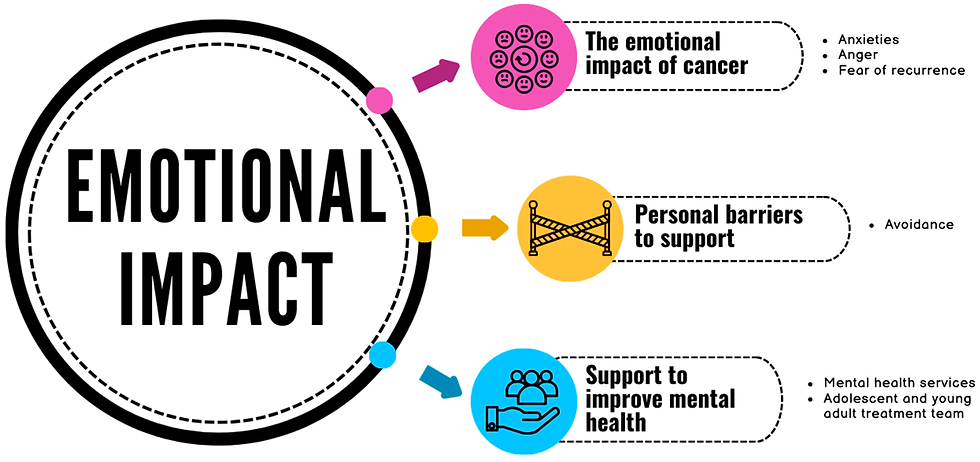Potential Links Between Emotional Trauma and Cancer Onset
- Premiere Mastectomy Vendors pmvofal@gmail.com
- Jul 31, 2025
- 1 min read
Emotional trauma has been a subject of research in relation to various health outcomes, including cancer. While the exact mechanisms are not fully understood, several potential links have been identified:

1. Stress Response and Immune Function
- Emotional trauma can lead to chronic stress, which may weaken the immune system. - A compromised immune system may be less effective at identifying and eliminating cancerous cells.
2. Inflammation
- Trauma can trigger inflammatory responses in the body. - Chronic inflammation has been associated with the development of various cancers.
3. Behavioral Changes
- Individuals experiencing emotional trauma may engage in unhealthy behaviors such as smoking, excessive alcohol consumption, or poor diet. - These behaviors are known risk factors for cancer.
4. Hormonal Changes
- Trauma can lead to alterations in hormone levels, particularly stress hormones like cortisol. - Hormonal imbalances may influence cancer cell growth and proliferation.
5. Genetic Expression
- Emerging research suggests that trauma can affect gene expression through epigenetic mechanisms. - Changes in gene expression may contribute to cancer development.
6. Psychosocial Factors
- Emotional trauma can impact mental health, leading to depression and anxiety. - Poor mental health can affect overall physical health and resilience against diseases, including cancer.
Conclusion
While there is no definitive causal relationship established between emotional trauma and cancer onset, the interplay of stress, immune function, inflammation, and behavioral changes suggests a complex relationship that warrants further investigation. Understanding these links can aid in developing holistic approaches to cancer prevention and treatment.





Comments